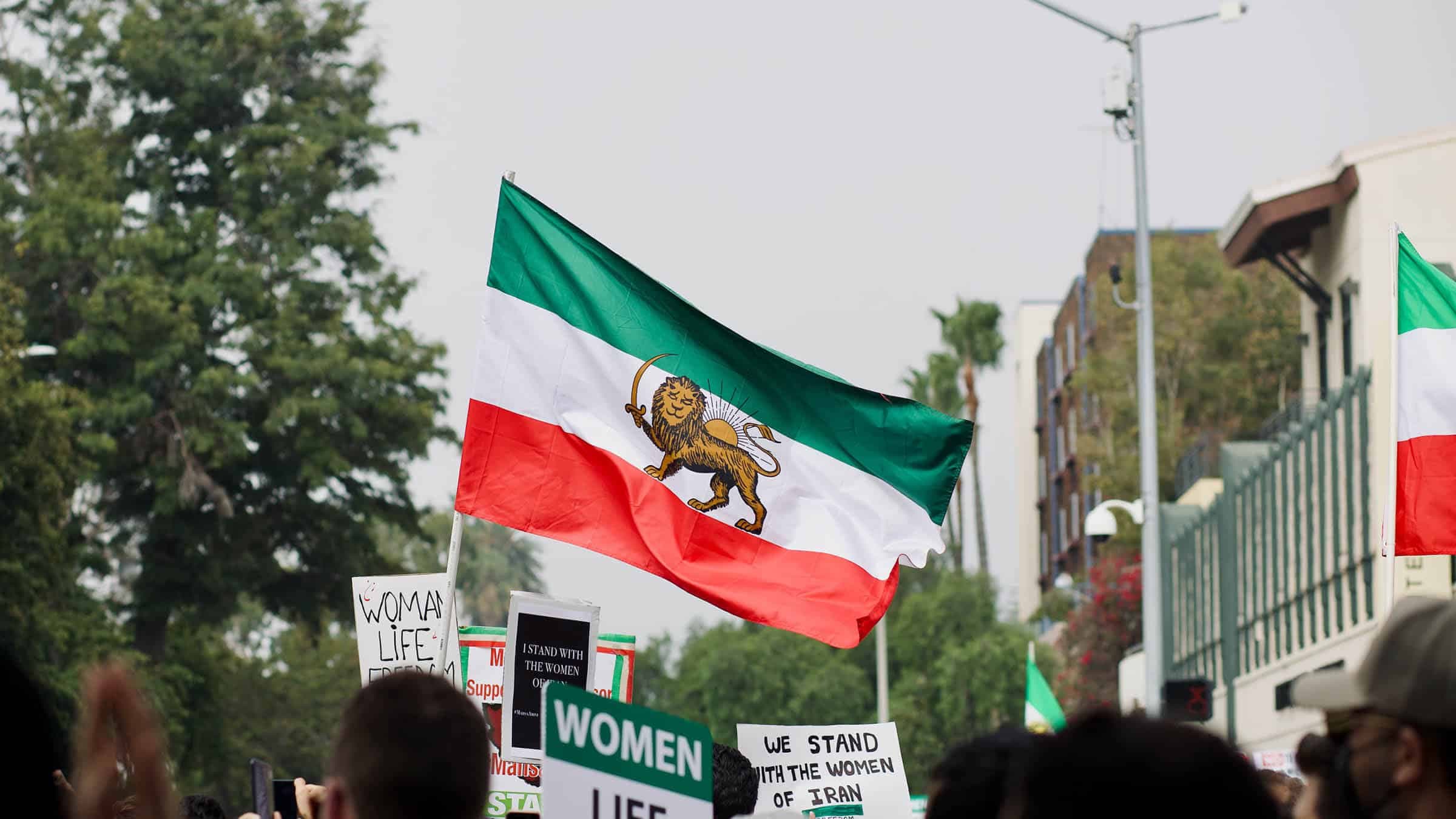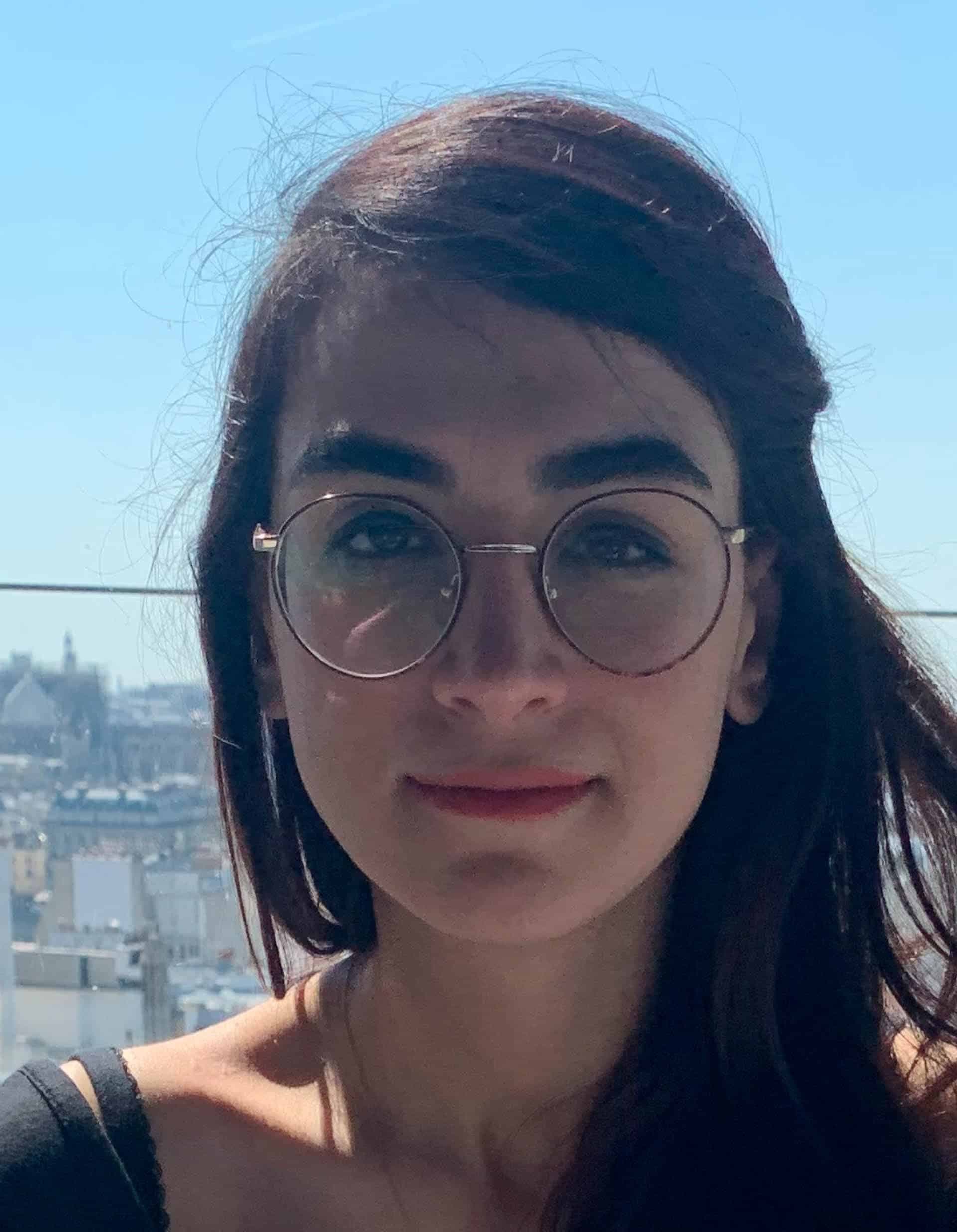The Iranian activists fighting for women’s liberation: Mahsa Alimardani

Born in Canada to Iranian parents, Mahsa Alimardani would often spend the summer months in Iran. Thanks to her father’s career as a pilot, she quickly became a seasoned traveller – frequently moving between North America, Belgium and Taiwan – but no cultural difference was so stark compared with what she experienced in Iran. She was just ten when she was told that she would have to start wearing the hijab whenever she visited the country.
“It was always a culture shock when I went back to Iran. I remember thinking, why are all the women around me wearing headscarves?” Alimardani says. “It’s hard not to notice as a child who was coming from free societies. Initially I thought it was cool, and then eventually, because we were spending the warmer months there, I started thinking it was awful. I remember asking my mum why, and the answer was that ‘they’ would come and take you away if you don’t and that these evil people who work for the regime will punish you.”
Now 33, Alimardani has spent the past decade of her life working to enable freedom of expression and access to online information in Iran, which has only become more crucial for women and girls amid the country’s ongoing protests. Currently she is a senior information controls fellow for the Open Technology Fund, a digital rights researcher for the human rights organisation Article 19, and a doctoral student at the University of Oxford’s Oxford Internet Institute.
Historically speaking, she says, the removal of a free internet has been one of the ways human rights have been abused within the Islamic Republic of Iran. As part of Article 19, she has been working to enshrine the right for citizens to access free and secure internet by liaising with big tech corporations like Meta, Twitter and Google. “By denying people access to the internet, the regime is effectively denying the right to life,” she asserts, speaking about the 2019 online blackout in the country, when the government almost completely shut down the internet for one week. “In the darkness of the shutdown, we potentially saw 1,500 or more deaths of protesters occur.”
Everything changed in September 2022. “As soon as we heard the news that Mahsa [Amini] was in a coma, there was this feeling that we were on the brink of something massive. In the aftermath of her tragic death we followed the protests [filled] with inspiration and horror while trying to work as quickly as we could. But beyond professionalism it’s something that’s close to my heart. I have friends and family who live in Iran and it’s a country that has defined a lot of who I am as a person.”

It is a fight where, again, access to a safe online space is vital, especially if cries for help are to be heard by the international community. “In a country where the public sphere is so heavily controlled, expressing yourself on the streets comes with huge risk, so having the right to represent yourself online becomes one of the main refuges for expression and protest,” Alimardani says. “And when it does reach boiling point and spills out onto the streets, we know there are going to be massive human rights crimes. These need to be reported, but free and independent media is greatly restrained, if not nonexistent, and journalists and foreign correspondents have limited access to Iran.”
While she acknowledges we are getting real-time updates from citizens on the ground, provision of a free and fair internet would make this a much quicker and more verifiable process. “The documented deaths since September have all been done through the internet and social media – but the restrictions mean that what we’re seeing is the tip of the iceberg. People are unable to connect to the internet or they’re too scared. Even if you look at the [Human Rights Activists News Agency] statistics, which are updated every day with regard to arrests and deaths, we suspect the numbers are actually much, much higher.”
Part of Alimardani’s work involves dealing with regime channels that pop up to identify protesters in order to arrest them later. Her team at Article 19 also liaises with companies to make sure that harmful content is removed and that Iranians are not being unduly censored. One recent project was about ensuring that the protest slogan “Death to Khamenei” is not filtered and removed from global platforms in a blanket fashion. “This is one of the main protest slogans we’ve seen and it started getting censored by Meta, who claimed it was violent incitement and went against one of their policies,” she says. “We worked with Meta to convince them to not take down that kind of content from Iranians because it’s not a legitimate threat and is being used as part of the protest effort.”
Alimardani, who has been working day in and day out since the insurrection started, sounds exhausted but the hope she has is palpable as she emphasises how everyone who has access to the internet can get involved. “It’s not superficial to just repost something, especially knowing the great pains people go through to get content up, or the risks they are taking to document things. Folks need to understand the gravity and the importance and the effort behind that content,” she says. “It’s extraordinary when you look at these people on the streets risking their lives to stand up for their rights and their futures, it’s beyond heroic. I don’t have the words to describe the selflessness and the moral courage you need to have to do what they’re doing.It’s not a race, it’s a marathon to get to the end of this regime.”
Taken from HUNGER Issue 27: Call to Action. Available to buy here.

